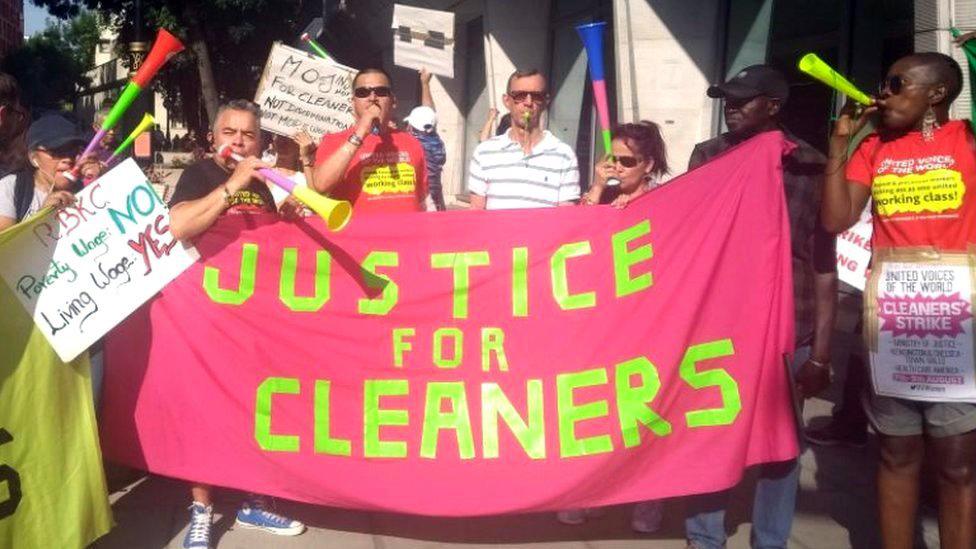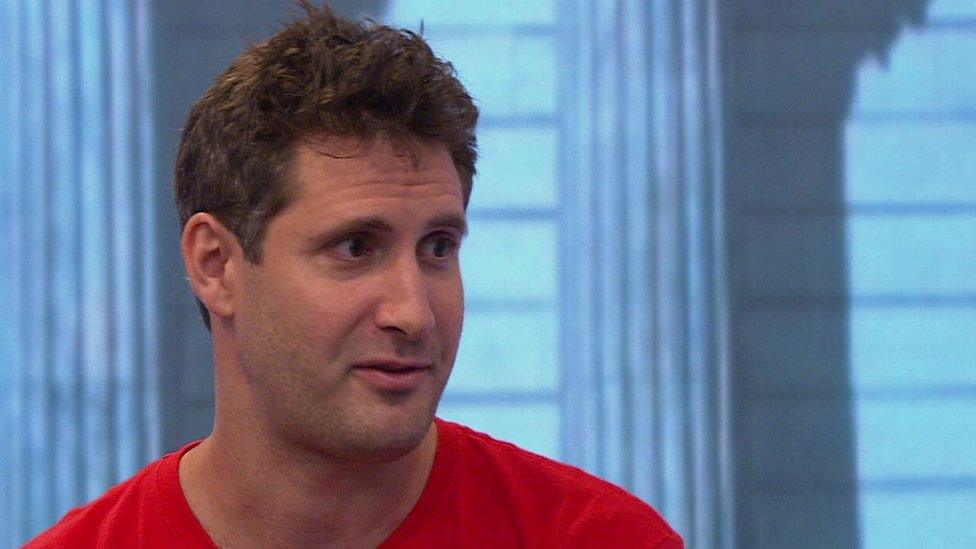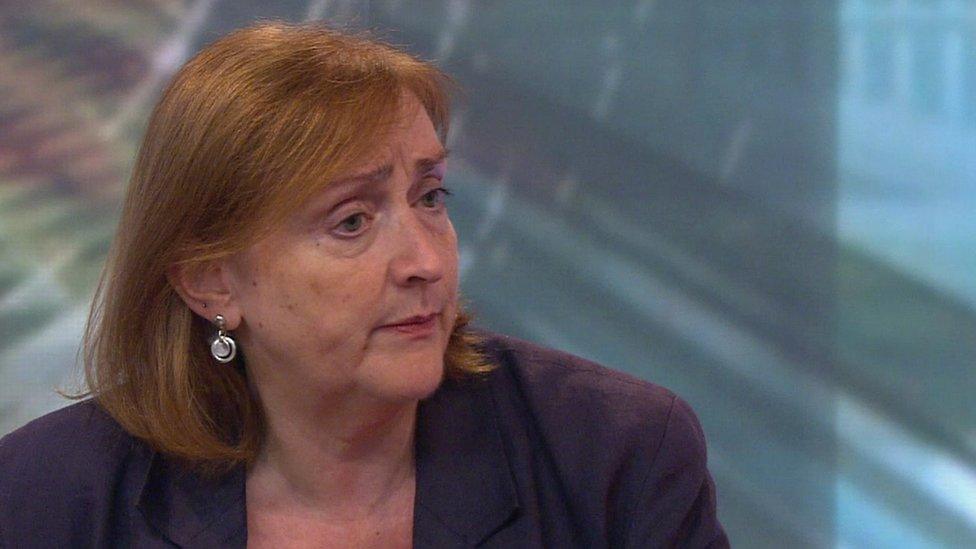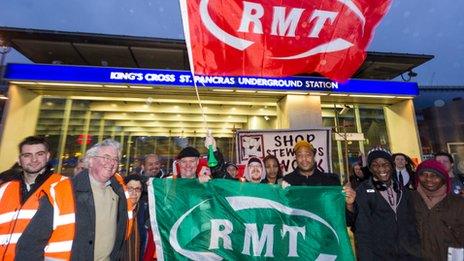Ministry of Justice cleaners strike over 'insufficient' pay
- Published
Cleaner Willan Arias Bermeo: "My pay is too low to live in London"
Cleaners at the Ministry of Justice and a London council have gone on strike over pay, saying they cannot afford to live in the capital.
The workers, mostly migrants, want to be paid the London Living Wage, over £2-an-hour more than their current pay.
One cleaner, at Kensington and Chelsea Council, said he had taken a second job and now worked 13-hour days so he had enough money.
The Ministry of Justice said its cleaners were "valued colleagues".
The Royal Borough of Kensington and Chelsea (RBKC) Council said it intended to take the cleaning services back under control from the contractor Amey, and would "review all the associated costs and services at that time".
'Our chance for change'
The cleaners on strike - who work at the Ministry of Justice, RBKC and private health providers - are currently paid the National Living Wage, at £7.83 per hour for those aged 25 and over.
One RBKC cleaner, Willan Arias Bermeo, told the BBC's Victoria Derbyshire programme he was struggling to afford to live in London despite having taken a second job.
"My situation is very difficult. I have to work very hard to get a good life here," he said.

The cleaners' protested outside the Ministry of Justice
"That is the reason every day Monday to Saturday I work, 13 to 14 hours per day."
He said after paying his rent, transport costs, bills and sending money to support his family in his home country, he was left with £100-per-month to live on.
He described the strikes as "our chance" for change. "Otherwise... there is no hope for us."

Petros Elia said the cleaners' strike was "unprecedented"
The United Voices of the World Union, which organised the strikes, said the dispute also included issues over the lack of an occupational sick pay scheme and parity with the pay of directly employed staff.
It founder Petros Elia said the cleaners were "really leading the way, showing what can be done if workers come together.
"These strikes are unprecedented, they're really demanding a wage they can live on."
The RBKC told the Victoria Derbyshire programme that it does "not control what Amey [the contractor] pays their own staff".
But Mr Elia claimed this was a "lie".
"They [the council] set the price, they decide the cleaners' wages, the cleaners' terms and conditions," he said.

Emma Dent Coad said Kensington and Chelsea Council can afford for workers to be paid the London Living Wage
Emma Dent Coad, Labour MP for Kensington, added that the case had been made to the council to pay its workers the London Living Wage for the past "eight years".
"Every time we've brought it to the council, the argument has been, 'We can't afford it, it will cost £1m a year to pay all our [contractors' staff] the London Living Wage,'" she said.
"They choose to subsidise opera and other things for the same amount," she added, "but they won't actually pay people a living wage so they don't have to rely on benefits."
'Valued colleagues'
Amey said in a statement that it was "committed to the wellbeing of its employees.
"We have a number of agreements with councils to pay the London Living Wage.
"[Kensington and Chelsea Council] made no such request and so the staff on this contract currently receive the National Living Wage."
Regarding its dispute over pay, a Ministry of Justice spokesman said its cleaners were "valued colleagues".
It added: "We strictly enforce the Living Wage in all our contracts but specific pay and terms are for employers to agree directly with their employees."
Watch the BBC's Victoria Derbyshire programme on weekdays between 09:00 and 11:00 on BBC Two and the BBC News channel in the UK and on iPlayer afterwards.
- Published16 December 2016

- Published31 December 2012
